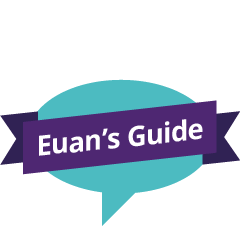Andrew Carnegie Birthplace Museum
Moodie Street, Dunfermline, KY12 7PL, United Kingdom | 01383724302 | WebsiteAndrew Carnegie Birthplace Museum
Visit date:
This review is especially helpful for those who have or use the following: Walking Aid, Wheelchair
Overview
As much a shrine as a museum, the Andrew Carnegie Birthplace Museum is a celebration of the life and work of arguably one of the most influential Scots of the 19th century. Carnegie was an industrialist, philanthropist and one of the wealthiest men of his time. Although born in Scotland, he emigrated to the United States with his family in 1848. Making his fortune in the steel industry, Andrew sold his company in 1901 and turned his focus to philanthropy. He built the infamous Carnegie Hall in Manhattan, founded over 2,500 libraries and even financed an excavation of a dinosaur! The species Diplodocus Carnegii carries his name, with the fossil earning the nickname Dippy in time. Dippy is known the world over and is the most complete dinosaur fossil ever unearthed.
Transport & Parking
There is parking just outside of the museum, with two accessible parking spaces and at least twenty standard spaces. The accessible parking spaces can be found next to the accessible entrance. There's room to open a door on either side, although the spaces are on an incline. The nearest bus stop is on Moodie Street, 85 metres from the museum or Reid Street, 322 metres away. There are dropped kerbs in the area. There is no dedicated taxi drop-off, but I'm certain a taxi will take you here.
Access
The accessible entrance is separate to the main entrance. Located across from the accessible parking spaces. There is a call button to request assistance, and a member of staff will come to let you in. The doorway is tight, but an accessible wheelchair should manage, just watch out for the raised lip. Taking a right, you'll find the gift shop and reception desk. There is also a ramp here. The front desk has a lowered section and an operational induction loop. You'll also find the main entrance, which has steps nearby. The gallery space is open-plan, with plenty of room to manoeuvre. I was able to see most things from a seated position and interact with the exhibits. Seats and benches are provided for those who need to rest. I didn't identify the use of braille signage in the gallery space.
Toilets
The toilet is located in a separate building, through the gardens and picnic area. There is a single door to the garden, which was pinned open during my visit. Please be aware of the lip at the door. Stone slabs slope down towards the toilet building, which has another lip and a single door. The toilet has a light sliding door with a tactile braille sign. The walls are painted green, which offers a slight contrast with the white toilet furniture and rails. There is a standard-height toilet with grab rails on both sides and a small, low sink with hot and cold lever-style taps and grab rails on both sides. There is space for a right-side transfer to the toilet from a wheelchair, although there is a small bin in the space. The baby change table is mounted on the wall on this side as well. The toilet is well-lit, with natural light flooding in through the frosted glass window. The red cord hung to the floor and even had a Euan’s Guide red cord card - love to see it.
Staff
The staff were lovely, eager to chat about the museum and ensure I was comfortable. They are glad to receive feedback and genuinely want to ensure the museum is accessible to as many people as possible.










 Follow Euan's Guide on Instagram
Follow Euan's Guide on Instagram
 Follow Euan's Guide on LinkedIn
Follow Euan's Guide on LinkedIn
 Follow Euan's Guide on Facebook
Follow Euan's Guide on Facebook


Comments
You have to be signed in to leave a comment.
Login / Signup